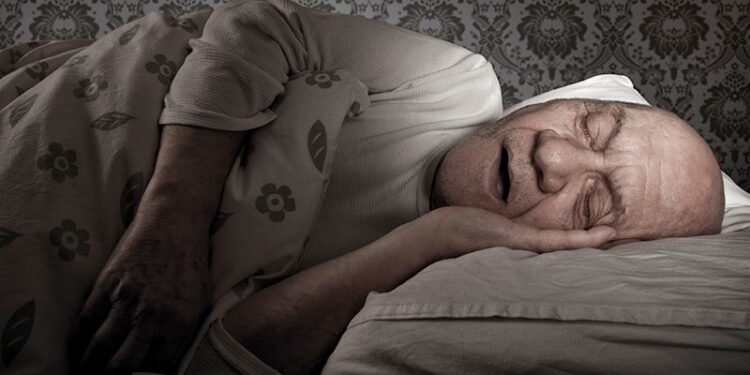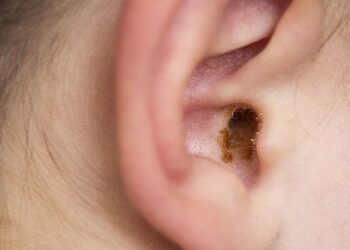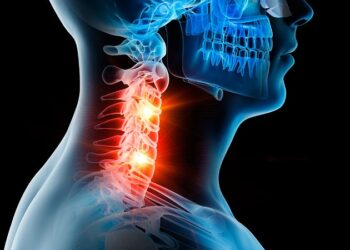Patients who used any form of prescription sleep medication within 90 days of undergoing total knee replacement were at an increased risk for complications of the procedure, a new study found.
The use of the drugs was linked to dislocations of the prostheses, revision surgery, falls, wrist fractures, and visits to the emergency department. The associated issues persisted for at least 1 year after surgery, according to the researchers, who presented the findings at the 2025 annual meeting of the American Academy of Orthopaedic Surgeons.
The study “can help inform guidelines for sleep control after a total knee arthroplasty,” said Bill Young, a second-year student at Stanford University School of Medicine in Palo Alto, California, and first author of the study.
Although insomnia is common following a total knee replacement and can hinder recovery, the effect of sleep medications on postoperative complications is unclear, the researchers said.
Using an administrative claims database, the researchers identified 149,627 patients who underwent primary knee replacement from 2011 to 2022 and reported taking prescription sleep medications within 90 days following surgery. Another 1,080,655 patients who did not use these drugs after surgery formed the control group.
The researchers analyzed the effects of standard prescription sleep medications, such as daridorexant, eszopiclone, and zolpidem, and less potent prescription drug, including doxepin and ramelteon.
Patients who used any of these drugs within 90 days after a total knee replacement had a 19% increased risk for falls during that time compared with those in the control group (1.29 vs 1.07; P < .001). Their risk for revision surgery was 17% greater (0.66 vs 0.56), and their risk for a wrist fracture was 45% higher (0.1 vs 0.07; P < .001 for both).
Young noted the study did not compare the risks and benefits of sleep drugs — which include improved sleep after surgery, which may aid recovery — “it only highlights potential associated risks and emphasizes the need for further research to be done.”
Dustin Schuett, DO, an orthopedic surgeon at Allina Health in Minneapolis who was not involved in the study, said sleep disturbance is a common problem faced by patients during recovery from a joint replacement, whether it involves the knee or the hip.
“Sleep in general can be a challenge in the first 1-2 months after surgery,” Schuett said. “It’s a combination of factors; definitely, a part of it is pain.”
While these patients experience pain throughout the day, the absence of other distractions at night makes the mind focus on what hurts, he said.
The study “shows us that a lot of medications that we think are typically safe can carry some risks,” Schuett added.
He said he recommends trying other strategies to induce sleep, such as minimizing screen time at least 1 hour before bedtime, engaging in breathing and relaxation exercises, consuming less caffeine in the afternoon and evening, and avoiding daytime naps.
Based on the new findings, it would be reasonable to decrease as much as possible the use of any prescription sleep medications during recovery from a knee replacement, said Aaron Leininger, DO, an assistant professor of orthopaedics and rehabilitation at Yale School of Medicine in New Haven, Connecticut.
“Knee replacement surgeries are one of the most successful modern surgeries, but they do come with risk,” Leininger said.
Anna Miller, MD, chair of orthopaedics at Dartmouth Health in Lebanon, New Hampshire, said her department often receives requests from patients for help with sleep aids.
“We want to help our patients, but we know that these sleep medications can have consequences, including potential overdose if patients are also taking opioid pain medications,” Miller said. “To help protect our patients, it is probably safest not to give prescription sleep medications after our surgeries, but to help patients understand that sleep often returns to normal on its own.”
Young, Schuett, Leininger, and Miller reported no relevant financial conflicts of interest.
Susan Kreimer is a New York-based medical journalist.
Source link : https://www.medscape.com/viewarticle/sleep-meds-after-knee-replacement-tied-complications-2025a1000840?src=rss
Author :
Publish date : 2025-04-04 13:18:00
Copyright for syndicated content belongs to the linked Source.














